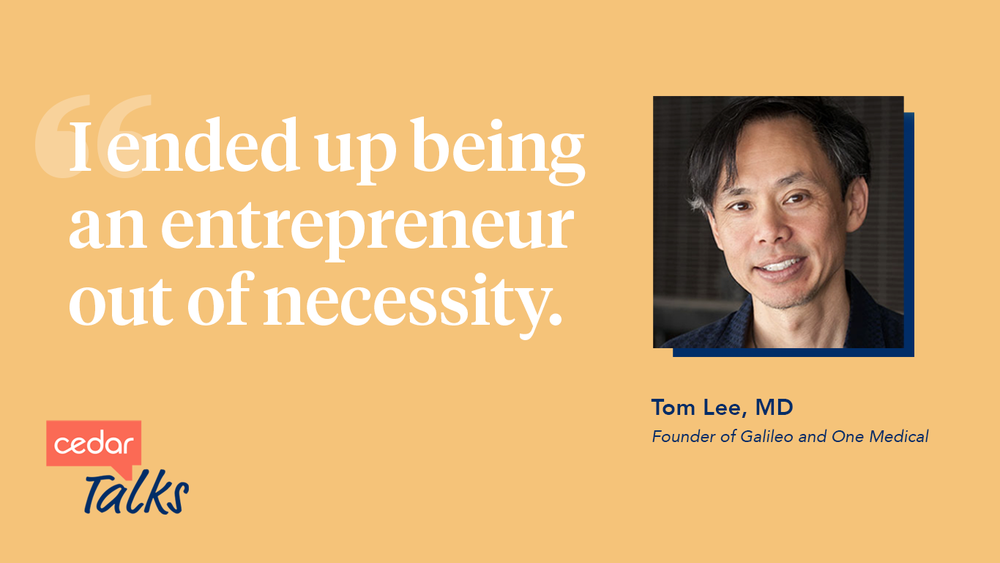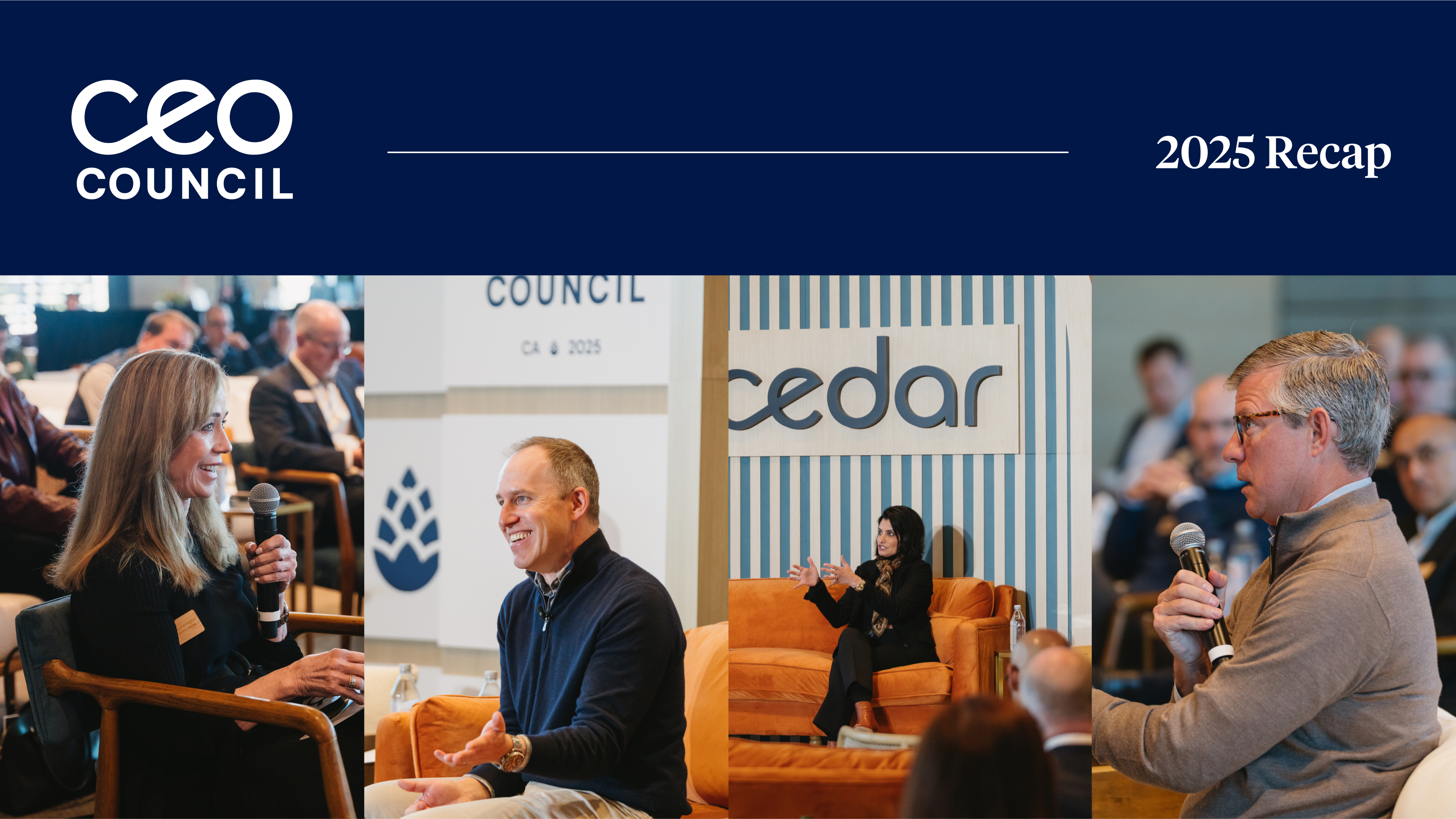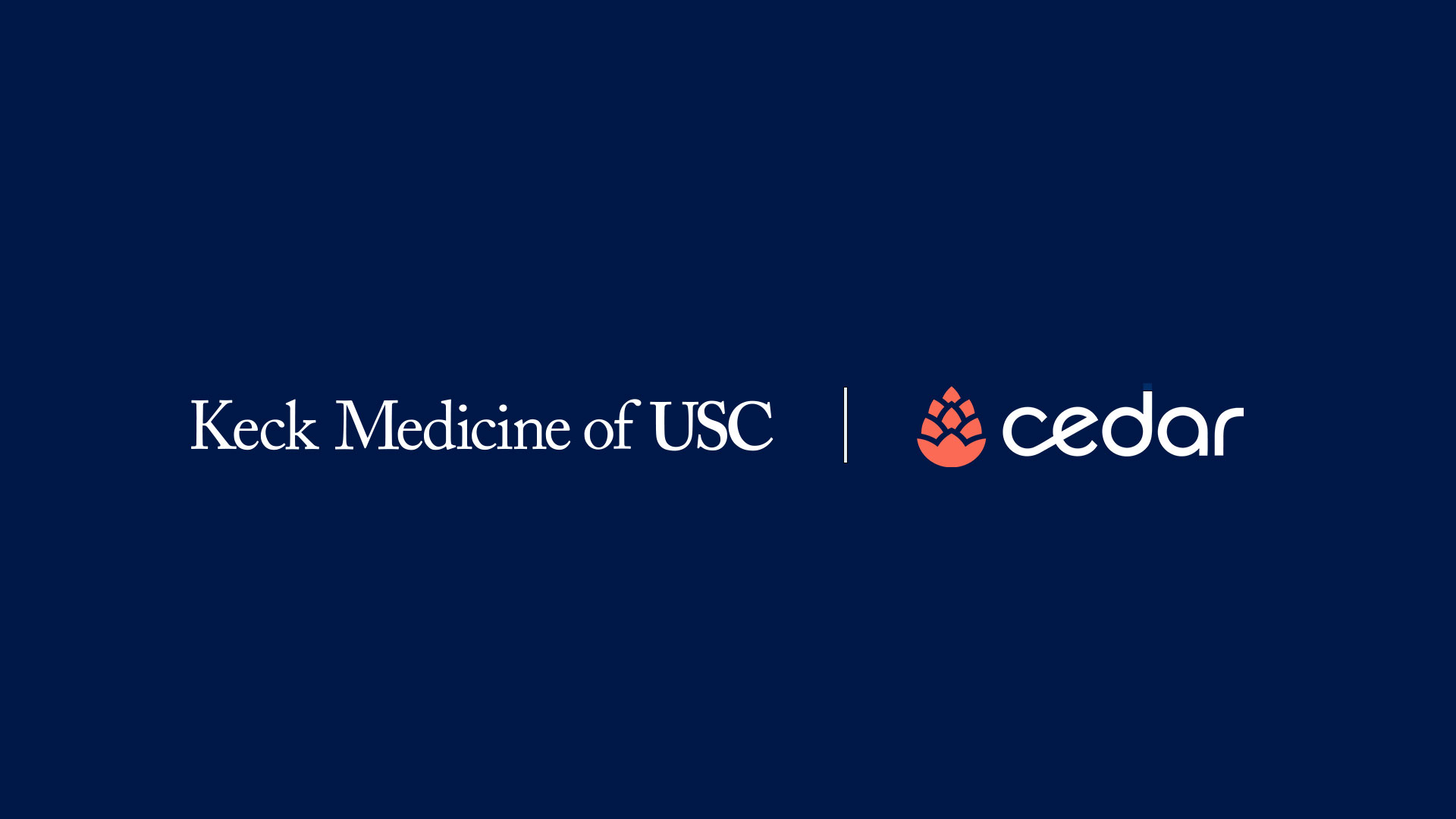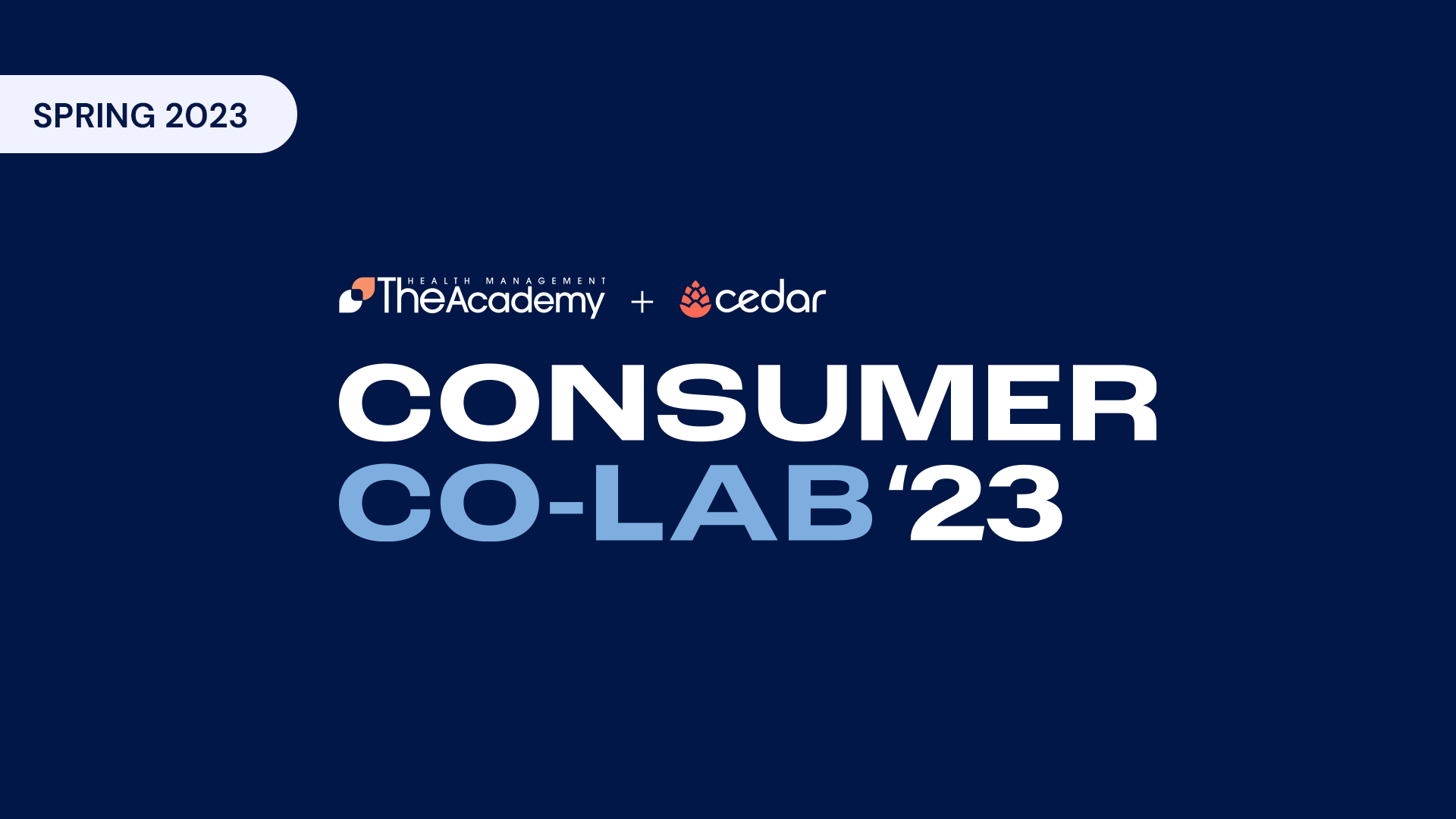Tom Lee, MD, founder and visionary behind Epocrates, One Medical and Galileo, recently sat down with Cedar’s Head of Marketing Bethany Hale to discuss his unintended career in entrepreneurship, his predictions for a post-pandemic world and his mission to transform healthcare for everybody.
Check out a few select highlights of the engaging discussion below. To get all the insights from the physician, serial-entrepreneur and healthcare visionary, click here to watch the full interview now.
Your first startup was Epocrates, a medical reference app that is still used widely today. You achieved successful product-market fit right away. Why do you think that was?
It is kind of crazy if you think about how long ago that was – the original platform was built on a palm pilot. It’s a little bit baffling to me that it’s still so widely used today and I love the fact that doctors still find it valuable.
Epocrates was kind of an accident—it was a student project that became a startup. At that time it was mostly just about cutting my teeth. One Medical was always my next vision but I knew I needed to get some basic business experience [first].
Epocrates relied on a very similar design principle that we applied at One Medical and Galileo, which is that if you focus on user experience and solving a fundamental problem, patients will find it an enjoyable experience. So we were lucky that that [focus] paid off and we were able to validate that product-market fit from the get-go.
It sounds like you were able to provide value quickly because you had that clinical experience and you knew what was missing in the market.
I do think that’s a unique factor for the companies that I’ve been involved with. And it comes out of the true spirit of why people go into medicine, which is to care for patients and solve their problems. And so that lens of clinical experience and patient care is really a critical aspect that drove the creation of Epocrates and One Medical. [They both came out of] the same motivation, the only difference was instead of arming physicians with better tools to take care of patients, now let’s design a better patient experience [with One Medical].
You founded One Medical in 2007. What was the vision for One Medical when you started? And do you feel like you accomplished that vision?
The original vision was similar to what One Medical is today, which is lucky. It’s rare that you have this sketch [in mind] and it comes to fruition.
But the vision was so obvious and clear. The catalyst was: you have these high-touch experiences in industries outside of healthcare, such as Starbucks, nice restaurants, boutique hotels, and then you have healthcare where you would imagine humanity and the high-touch experience was just as critical. But the experience was the exact opposite.
It was a lot of learning. We asked, ‘Why are 99% of physician practices all the same and broken?’…There is a reason. And then you have to determine how to break away from the norm. What’s counter-intuitive about One Medical is that it was really about the economics of how you make primary care work that mattered. When we were starting out, nobody was interested in primary care. This was pre-Affordable Care Act and nobody thought you could make anything work in primary care that had any economic viability. So it was a pretty big leap of faith.
But I knew that there was so much money in the healthcare system that was being wasted. I knew that the patient experience was pretty crappy. And I knew that primary care had a lot of great touchpoints with patients. So if you could design a better mousetrap that was higher-touch and more efficient, then you had a model that would work.
To hear more about the origin story behind One Medical, click to 12:25 in the full interview.
You’ve said that One Medical was able to achieve 10 times the service [of traditional primary care] at about one-third of the labor cost. How did you design that model?
That’s just one of the many fallacies in healthcare that we debunked. [We showed that] you can have more for less. Everybody that we talked to said, ‘There’s no way you can make primary care work. There’s no margins, you need all these people to do all this administrative work.’ When we got down to it, a lot of those things weren’t necessarily true. At the end of the day, it was all about basic management.
If we look at the results that One Medical was able to achieve—and it is literally about 10x the service at one third of the labor cost—there are a few factors [at play]:
- The benchmarks are pretty mediocre. The average medical practice is not effectively run and it’s because doctors are not really good at management. We are scientists – we’re trained as humanists, not as operators. And hospitals that tend to acquire these practices are not great at managing lean teams. They’re used to dealing with industrialized, hospital-based procedures. And so they tend to not make smart, lightweight decisions in practices and lose money in a primary care environment.
- We were much more disciplined. We didn’t have [the burden of] all this legacy, so we started very lean from the beginning and only added when we really needed to.
- There is relatively little attention paid to the quality of labor and how well you manage a team [in a medical practice], and you don’t get that for free. You have to spend a lot of time recruiting, training, managing and building a culture that fosters that type of activity.
To learn more on this topic and the economics of primary care practices, see 18:51 in the interview.
Let’s switch gears to talk about Galileo. What is the model of Galileo and how is it different from One Medical?
My motivation as an entrepreneur has been to solve patient care systematically for everybody. One Medical for the most part is an urban, commercial model and I felt like there was an opportunity to address everybody else.
My long term mission is to continue to transform healthcare on a quality and affordability basis for almost everybody. So there’s an opportunity to look at areas where One Medical isn’t. We wanted to design something for complex patients, underserved populations and people that have a lot more needs that just don’t fit into [a standard] office visit. So the way to think about Galileo is kind of like bookends: upstream digitally and downstream in the home around care for more complex and varied populations.
For full context on Galileo and tech-enabled primary care, see 29:22 in the interview.
Some people are predicting that some of the technology being used during COVID-19 could change healthcare delivery permanently. What long-term changes do you think will emerge?
We’re in a moment of crisis; people are pretty anxious, stressed out and emotional. You’re seeing a lot of visceral reactions and forecasts. I’ve been through enough cycles in healthcare that I’m a little bit more sanguine. You can’t magically change the economics of healthcare. Physicians, hospitals, the healthcare labor force—it’s expensive.
And the payment models are very established and predictable. If we were to suddenly transform the way we pay providers, it would all be unclear. So I think [change] is going to be more gradual than people anticipate.Once the dust settles, each individual hospital and physician group is going to need to get a handle on their economic situation. And probably more than ever, there’s going to be a gravitational pull towards the services that are driving most of the margins—and today, that’s still procedures…So I think back-to-basics is probably more likely in healthcare over the next 12 months.
But I think there will be some incremental cracks that start to sow new seeds that will germinate over the next 2-5 years around digital health. Providers are doing telehealth today out of duress and necessity and they are finding it ‘easier’ than they would have anticipated, but I think this is a temporary measure. There are a lot of doctors that have very established methods that would prefer to put hands on body, type a note in the office, etc. So we’ll see how radical a shift this is afterwards. The actual fundamental change will still take a little bit longer than people are forecasting.
For more on tele-health and COVID-19 impact, navigate to 44:35 in the interview.
Cedar Talks is a thought leadership series focused on connecting the Cedar team and broader community with tech entrepreneurs who are dedicated to solving hard problems with great design, thoughtful engineering and industry expertise. Recent Cedar Talks have included Oscar CEO Mario Schlosser, a16z general partner Julie Yoo, tech investor Ashton Kutcher and AppNexus Founder Brian O’Kelley.



